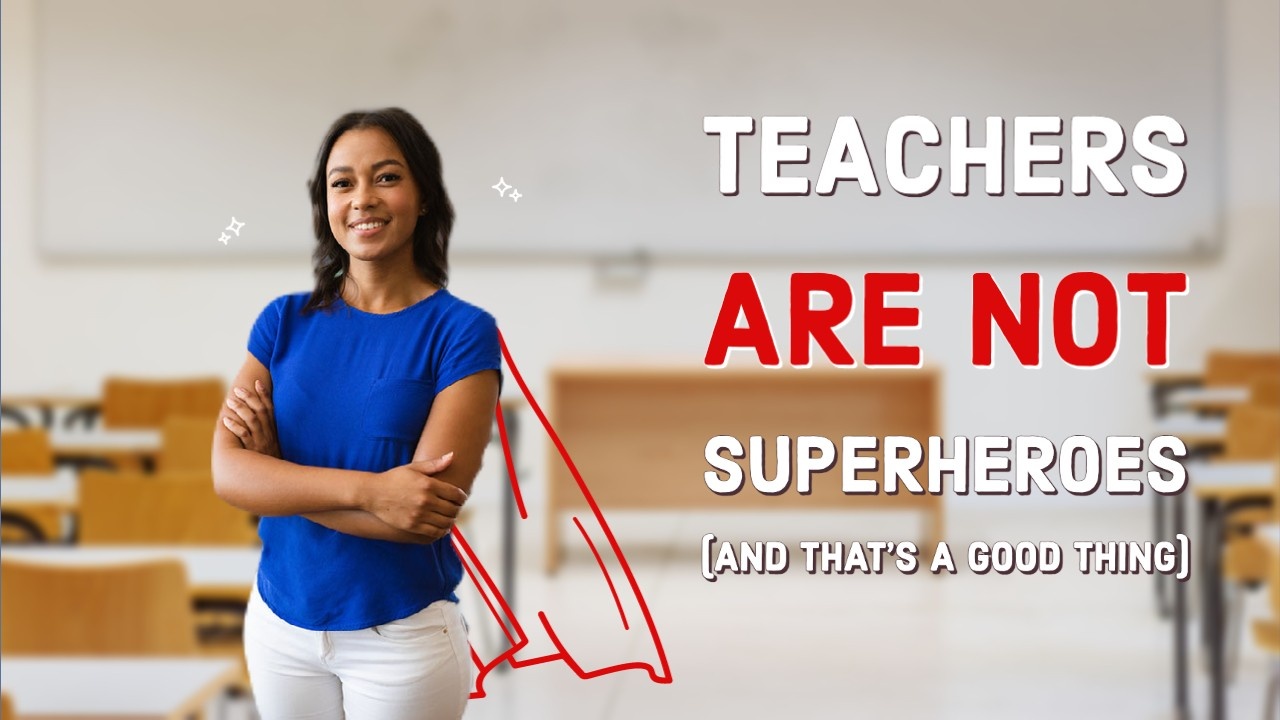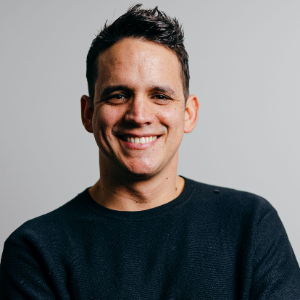
Teachers Aren't Superheroes (And That's a Good Thing)
Jun 29, 2021Do a quick Google search with the words ‘teacher superhero’ and you will find hundreds of graphics of teachers wearing capes, websites and influencers bearing these words, and countless articles about how to be that teacher who can save all of their students. How many conference keynotes and educator books have you seen with the premise that a teachers’ primary mission is to lay it all on the line for their students? “We have to rescue our kids from their lives, be their source of love and caring because many of them will not get that attention from anywhere else. You’re not an English or math teacher, a kindergarten or PE teacher; you’re a hero, and that’s what your students need you to be.”
Sound familiar?
Well I have a problem with this sentiment.
Actually I have 4 problems with it. Here are 4 reasons why teachers do not have to be superheroes and their students do not need them to be their saviors.
This Mentality Leads to Teacher Burnout
In my first year of teaching, I did everything humanly possible to reach every one of my students. I chaperoned every dance, stayed late after school to help every student who needed it, tried to plan every single lesson to be an epic, bombastic learning experience, volunteered for every committee, and devoted every ounce of my energy to my job. And I’m not going to lie, this output made me look good to my administration. It also made kids enjoy being in my class most of the time, as every single second of it was designed for them to love. However, it also left me absolutely drained. After only a couple years of this kind of teaching, I was thoroughly spent and burned out from the profession.
The problem is, if our own cups are not full, we will have nothing to overflow to our students. Teaching (and life) requires balance. Trying to be all things to all students is impossible. Instead, teachers have to setup structures and boundaries for themselves for the sake of their own well-being and that of their students.
After discovering being a superhero is unsustainable, I learned how to say things like,
“I’m sorry, I’m not able to stay late to tutor you today. But practice this at home and I can check in with you before school tomorrow.”
And,
“No I don’t have a big simulation or project planned this week; we are tackling the grammar unit.”
And,
“No, I can’t coach the soccer team.” “No, I can’t chaperone the dance.” “No, I can’t be on that committee.”
I learned to say no (which most superheroes don’t do), and it did wonders for my emotional and physical health.
Being a ‘Savior’ is an Unattainable Standard
Here’s a hard truth: no matter how hard you work and how dedicated you are, you will never be perfect. This truth is hard because it seems so many people in society expect you to be perfect. Parents want you to be perfect for their kid. Principals want you to be perfect for their school. The school board wants you to be perfect for their district. Governors want you to be perfect for their state. But this standard is unachievable.
I once had a student who entered my high school class on the verge of dropping out, and so I was deeply invested in him. I did everything in my power to get him to succeed. I extended extra grace, stayed after school with him whenever he needed it, checked in every single day, and carried the student around in my mind long after school hours. And after tireless work, I thought he was finally turning a corner.
Parents want you to be perfect for their kid. Principals want you to be perfect for their school. The school board wants you to be perfect for their district. Governors want you to be perfect of their state. But this standard is unachievable.
I’ll never forget the day when I found out that he dropped out of school. A couple months later when I saw him standing on the street corner during school hours, my heart was broken even more.
I felt like a failure. I had failed at my job and I failed this student. I remember expressing this feeling to an older teacher, and she said to me, “Trevor, it’s not your job to save every student. It’s your job to love every one of them and give them opportunities to succeed.”
Students Don’t Need to Be ‘Saved’
When we say things like, “My job is to change students’ lives,” or “I work with underprivileged kids,” or “If not me, then who else will help them?”, we are essentially putting our students in boxes they don’t belong in. Whether a student comes from a rich or poor home, have involved parents or not, or live in a high-crime neighborhood or not, they are more than these things. Every single student is a complex being with so much more than meets the eye.
By viewing them as beings who need to be saved, we are discounting their inherent value and contribution. We miss the dynamism they bring to school regardless if they have behavior or academic issues. We are boiling down the complexities of a student’s life to categories that are far too small. Rather than saving our students, I think we need to give them relentless love, and with that, opportunities. Opportunities for connection. Opportunities to be challenged and to grow. Chances to learn and succeed in a safe environment. By adopting this mindset, not only are teachers relieved of the duty to ‘save’ their students, the students are not put into an unfair box with other students who ‘need to be saved.’
There’s a Difference Between Superheroes and Heroes
Just because teachers should not try to be superheroes does not mean that they are not heroes. The expectation and pressure to be a savior for all students; demanding a teacher to sacrifice all of their time and energy for their jobs, is not realistic and it is not helpful.
However, when teachers find work/life balance and therefore have the capacity to teach their students well, heroic results often do happen. Adults 20 years later attribute their success to ‘that one teacher.’ Kids learn to read. First generation students make it into college. Students become better people. Sometimes that student on the edge of dropping out does make it to graduation. The teacher who is dedicated to their craft and shows up every day to love, care for, and educate their students will have an impact.
Guaranteed.
But they also can leave at the end of the school day and not think about work when they get home.
None of this is to say teachers can’t be great, or that they shouldn’t volunteer to chaperone dances or have epic lessons and projects for their students. Instead it’s to state that teachers do not always have to do these things in order to be the teacher their students need. So instead of wearing that t-shirt that says, “I’m a teacher, what’s your superpower?”, just wear a dark one you don’t mind spilling coffee on.
Stay Connected With Trevor's Work
Join thousands of educators who receive weekly articles, videos, and inspiration from Trevor.
SPAM is the worst. I promise to only send you my best stuff and NEVER to share your email.

